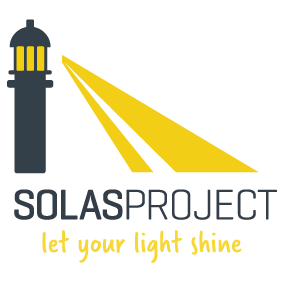Bridging the Gaps: Expanding Support for Young People and Families
/This May marked one year since we launched our Strategic Framework, outlining our organisational priorities for the next five years. Looking back, it’s exciting to see the progress we’ve made, especially in our first two strategic priorities:
Develop the reach and depth of our programmes
Identify and address gaps in provision, opportunities, and connections
These two priorities go hand in hand—as we continue to strengthen our existing programmes, we can better identify where the gaps are and create targeted supports where needed the most. In relation to our community-based youth work, we were able to pilot two new programmes over the past year to target groups we haven’t previously had supports and services in place for.
Supporting Mothers: The Young Women’s Group
Young Women’s Group Meeting with local councillor Darragh Moriarty
The first of these exciting developments has been the launch of our Young Women’s Group, formed in response to the need for support among a number of young women connected to Solas Project through their children or our Liberate work.
Meeting weekly in the mornings, the group offers a space for connection, fun, and self-care. From ice skating at Christmas to a trip to Dún Laoghaire and a barista training course, the women have shared joyful moments that have helped build strong connections. But it’s not just about the activities—the group has also created space for honest conversations around the realities of motherhood in Dublin 8. In one such session, they met with local councillor Darragh Moriarty to discuss the wider changes needed in their community.
What’s emerging from this group is more than just support—it’s aspiration. For many, this space has sparked a renewed sense of personal potential and the belief that change is possible, both individually and collectively.
Barista Training with Imbibe Coffee Roasters
In the words of one participant:
“The young women’s group gave me the push to apply for college and gave me the confidence to think that I’ll be able for it. Having a youth worker from the same area that has done the same course gives me hope that I can achieve the same as that youth worker and achieve the goals I’ve set myself.”
Moments like these speak to the deeper impact of the group: building confidence, inspiring new paths, and quietly planting the seeds of social change—one conversation, one connection, one step at a time.
The group hosting an event for International Women’s Day at Solas Project
A New Transition Group for Young People
Adventures with the group around the Community
The second key initiative we launched is our Transition Group for young people aged 10–13. This programme fills an important gap for those who have aged out of our After Schools programmes but aren’t yet ready to fully integrate into our broader youth work services, which support young people up to age 25.
With 12 young people currently attending twice a week, it’s a busy and energetic programme—purposefully designed to meet the unique needs of early adolescence. This stage of life brings rapid change, and the Transition Group provides consistent, positive support during a time that can often feel uncertain.
As research reminds us, young people thrive when they have consistent, caring adults—what some describe as "lighthouses"—to help guide them.
“…adolescents benefit most from a parent [or caring adult] who’s a “lighthouse.” This kind of adult keeps the child in bounds whenever it’s a matter of safety or ethics, while allowing them to explore their own decision-making abilities. The role of caring adults who serve as a lighthouse can be life-changing for teens.”1
Group Outing to Jump Zone
Given that a lighthouse represents our organisation, the analogy feels especially meaningful. The Transition Group offers both support and freedom, fun and structure—becoming a guiding light that helps young people find their way.
The programme focuses not only on fun and connection, but also on building essential life skills—like preparing food and managing time, as well as emotional and behavioural support.
Playing music together with a Volunteer from our Peer Mentorship Programme
Young people enjoy a wide range of youth work activities, from pool and PlayStation to art and DJing, while also receiving support with homework and learning everyday tasks like making their own wraps and toasties. Outings—like a trip to Smyths to restock board games or bouncing through Jump Zone—offer both fun and valuable learning moments, giving participants the chance to practise decision-making and social skills.
This group has already made an impact—helping young people stay engaged and supported, rather than slipping through the cracks, by building emotional regulation, self-expression, and confidence. It’s all part of laying a strong foundation for the years ahead.
Looking Ahead
Over the past year, these new programmes have strengthened our priorities of bridging gaps and building lasting support systems. Whether through creating a safe space for mothers or ensuring young people remain connected, we are committed to evolving alongside the needs of our community. As we move forward, we remain focused on expanding opportunities and fostering strong relationships that empower individuals at every stage of life.
Citations:
1 Cleveland Clinic, "Adolescent Development," Cleveland Clinic, accessed June 1, 2025, https://my.clevelandclinic.org/health/articles/7060-adolescent-development.









